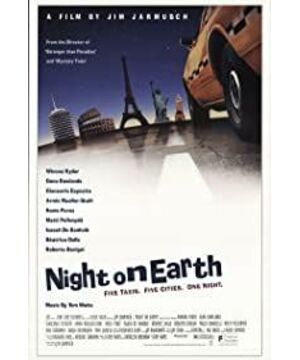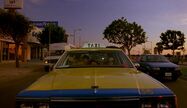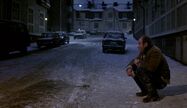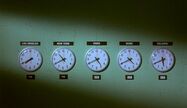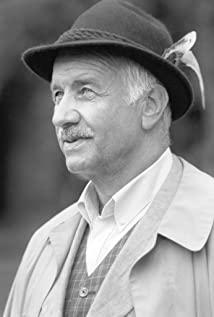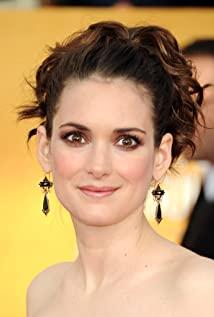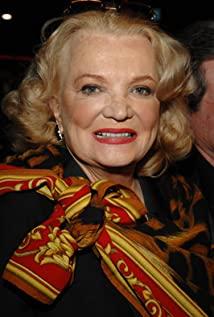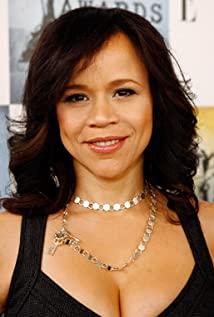A total of five stories were told, which took place on a midnight rental in the same time period. About passengers and drivers.
The same is storytelling, there is a bit of Italian cynicism about Jarmusch, he doesn't comment, doesn't vent, doesn't communicate, just states; he is like a cowboy passing by a bar, sipping a beer and confessing a stunt, and then quickly leaves, erratic, No thinking, no subject, pure straight line expression.
These take place in the world famous metropolis, Los Angeles, New York, Paris, Rome, Helsinki. When the night or dawn is approaching, the city is silent and dark. What we can see is not the bright and fierce city in the sun, but all the colors are mixed with a strong indifference and alienation: messy streets, gray buildings , rubbish and smoke, heavily peeled railings, homeless and prostitutes, furry streetlights, scribbled branches - this is the shadow of the city, rundown and cold, and has a strong black smell. Even in the segment of Helsinki, known as the paradise on earth, the dawn, the icy light of the street lights, the drunken passengers and drivers pouring out bitter waters, the mourning and calm voice became the last straw that broke the Nordic paradise. There were tears, but none of them cried because the world has grown up and we no longer believe in fairy tales.
What constitutes the rhythm in this film is the dialogue, but in the first two places it is still early and the city is still bustling, while the background in the last three places is silent, and the dialogue and sound are so prominent that it is terrifying. When I looked at the front, I felt that there was some Stephen King flavor, but later it gradually turned to the iceberg. The whole movie is a big iceberg, and Jarmusch is a calm and uninhibited bystander: shocking moments, awe-inspiring humor, cynical ridicule, his sharpness and indifference.
I'm not quite sure what the theme of this movie is, Jarmusch has always been erratic, rambling, not thinking, not thinking: Cocky who is hopelessly insisting on himself, the clown driver from East Germany, the arrogant blind girl, the inexplicable Italian driver and Drunkards... I don't know what Jarmusu wants to express with these characters and stories. Maybe he didn't express anything at all. This kind of mocking tone that seems to be rummaging through old things on a boring holiday afternoon may be better than not expressing it. in atmosphere and mood.
I am reminded of the Taiwanese movie "One Page of Taipei" I watched earlier. Of course, the former is undoubtedly much thinner than Jarmusch. It was a sultry afternoon, and I was reading Jelinek's "Beautiful Good Times" when I opened the movie. I started to one side, and then I simply put down the book and slowly read Jarmusch's story. Stopped twice in between. At this time, it was almost dawn, and the disturbance just ended made it difficult for me to fall asleep, so I thought of the blind girl and the Ivorian driver in the movie:
Driver: Don't blind people usually wear sunglasses?
Blind woman: Yes. Not sure, I've never seen a blind man.
I don't know the critics' definition of Jia's style, but when I watch it, it seems that the man has been calmly out of the way, while being at ease as if participating in it. This reminds me of stream of consciousness.
They are all narrators, free narrations that are free to associate with one's own imagination. They don't imply hard thoughts, they don't express strong desires, but they hold us down like rain, allowing everyone to understand themselves through them.
After junior high school, the classics I read were basically stream of consciousness. They seemed to be chattering, but they were dense and rich.
They speak, but do not express. They are like lies. In fact, it is the degree of believing or unconfidence of the deceived, which determines the truth of the lie, such as the blackness of the blind.
Therefore, all abundance comes from within us.
View more about Night on Earth reviews


